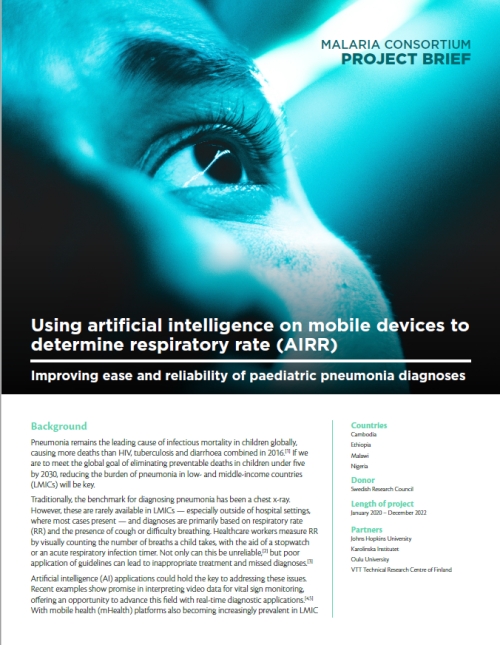Publications

Publication Date:
11/11/2020
Type:
Project brief

Using artificial intelligence on mobile devices to determine respiratory rate (AIRR)
Publication Date:
11/11/2020
Type:
Project brief

Publication Date:
11/11/2020
Type:
Project brief
Publication

Using artificial intelligence on mobile devices to determine respiratory rate (AIRR)
Publication Date:11/11/2020
Type:
Project brief
This study seeks to assess the feasibility of using artificial intelligence on mobile devices to determine respiratory rate in under-fives in low- and middle-income countries.
Pneumonia remains the leading cause of infectious mortality in children globally, causing more deaths than HIV, tuberculosis and diarrhoea combined in 2016. To improve the ease and reliability of paediatric pneumonia diagnoses, this pilot study seeks to develop, and assess the feasibility of using, artificial intelligence — through videos captured on mobile devices — to determine respiratory rate in children under five in low- and middle-income countries.
Country: Cambodia | Ethiopia | Malawi | Nigeria
Keywords: Digital health | Research | Pneumonia | Case management | Diagnosis | Quality improvement | SDGs
« Back to Publications